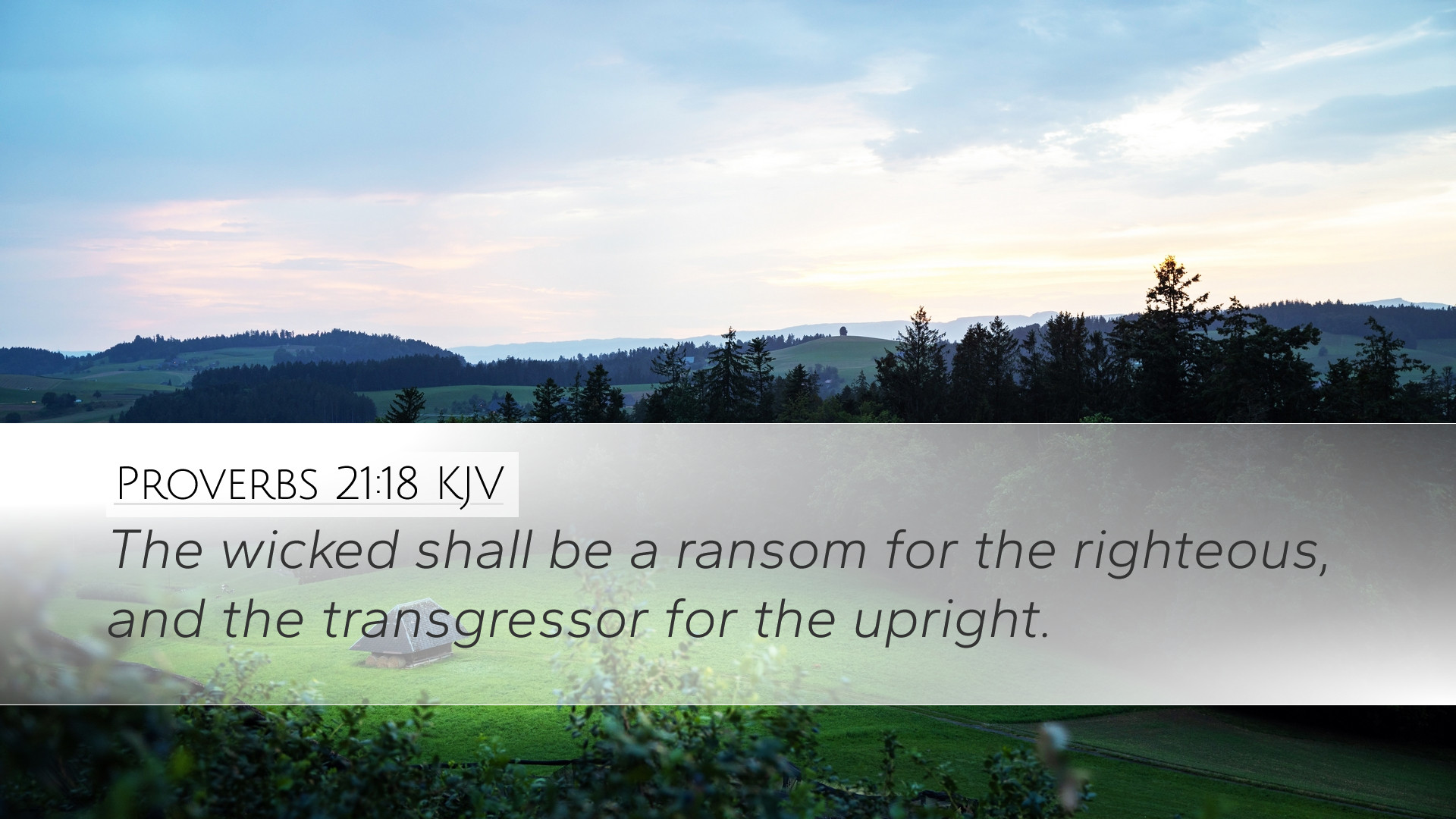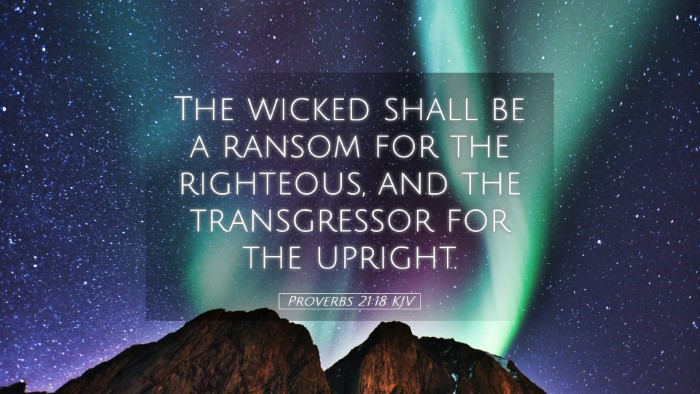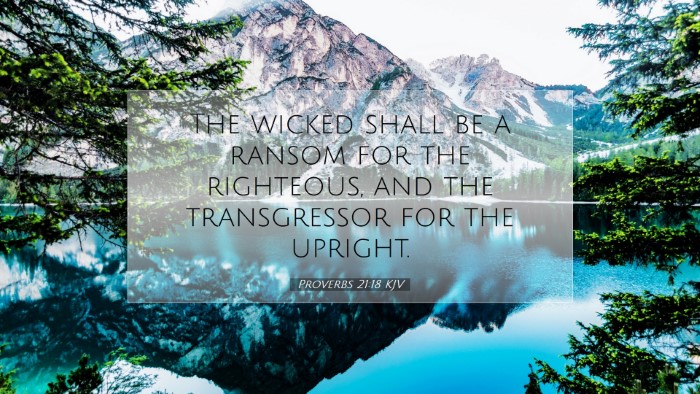Commentary on Proverbs 21:18
Proverbs 21:18 states, "The wicked shall be a ransom for the righteous, and the transgressor for the upright." This verse presents profound themes regarding justice, righteousness, and the overarching governance of God's economy. In this commentary, insights from renowned public domain scholars such as Matthew Henry, Albert Barnes, and Adam Clarke will be synthesized to provide deeper understanding.
1. The Context of Proverbs
The Book of Proverbs, often attributed to King Solomon, is a rich collection of wisdom literature. It addresses the practical application of knowledge regarding daily life, ethics, and relationships. Proverbs 21 stands within a section that draws contrasts between wisdom and folly, righteousness and wickedness. Here, chapter 21 reflects on justice's nature in God's sovereign plan.
2. The Nature of the Wicked and Righteous
-
Matthew Henry's Perspective:
Henry emphasizes the weight of the phrase "the wicked shall be a ransom," suggesting a divine attribute wherein God allows the wicked to serve as a recompense for the righteous. He notes that indeed, sometimes in God's sovereign justice, the wicked face dire consequences that can lead to the benefit of the righteous. This emphasizes not merely punitive justice but also a corrective nature. Righteous individuals may see their situation improved at the expense of the wicked, which serves God's plan.
-
Albert Barnes' Insights:
Barnes complements this by elaborating on the meaning of "ransom." He indicates that this word reflects a transaction, where the suffering of the wicked provides an expiatory value, enhancing the spiritual state of the righteous. He cautions that although this might appear harsh on the surface, it aligns with God's providence, allowing the wicked to unwittingly contribute to the greater good.
-
Adam Clarke's Interpretation:
Clarke posits that this verse can also be seen through the lens of societal order and justice. He implies that occasionally, the punishment of the wicked serves to restore balance, thereby functioning as a necessary agent for the promotion of virtue among the upright. Thus, while the wicked may suffer, it can lead to an environment that fosters righteousness and esteemed moral standards.
3. Theological Implications
This verse raises significant questions about God's justice and mercy. The scholars highlight that:
-
God's Sovereignty:
All three commentators firmly establish that God's sovereignty governs all actions, implying a divine purpose behind human experiences. Henry asserts that the wicked's downfall serves God’s righteous judgment while simultaneously uplifting the just.
-
The Interconnectedness of Justice:
Barnes stresses that the moral fabric of society is intertwined; actions of the wicked inevitably affect the righteous. Clarke reiterates this idea by indicating that societal consequences often ripple through the community, thereby making one's actions significant in a larger moral and ethical framework.
-
Redemptive Narrative:
Clarke emphasizes that despite the harsh realities of this principle, God’s redemptive plan operates through it. The lament of the wicked must be framed within a trajectory toward repentance and restoration, ultimately illumined through Christ, who embodies this principle of sacrificial love.
4. Practical Takeaways
For pastors, students, theologians, and Bible scholars, Proverbs 21:18 offers considerable guidance:
-
Understanding Divine Justice:
Embrace the concept that God's justice may often be mysterious and operate beyond human comprehension, yet it is always fundamentally good.
-
Encouragement for the Righteous:
This verse serves as a source of encouragement for those striving to live righteously, affirming that their lives and struggles hold value within God's order.
-
Call to Confession and Restoration:
Reflect on the need for confession and repentance in the context of wickedness. Hold fast to the belief that transformation is possible and that God’s grace abounds.
5. Conclusion
Proverbs 21:18 encapsulates a profound truth about the nature of God's justice and mercy. Through the lens of public domain commentaries by Matthew Henry, Albert Barnes, and Adam Clarke, we find a multi-faceted understanding of righteousness and wickedness, punishment, and societal moral bearings. As we meditate on this verse, let us remain assured that God's providence governs all, inviting us to trust in His ultimate plan for justice and redemption.


